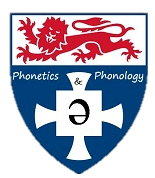From January 2022 to May 2022, our research group has continued to be well-engaged in projects from Semester 1 and arranged new workshops to discuss topics of interest amongst our team members. The following is a summary of what we covered this semester:
- Accent and Social Justice
Since the beginning of this academic year, we have focused on the theme ‘Accent and Social Justice’, reviewed several related articles, and had Melissa Baese-Berk from the University of Oregon share her and her colleagues’ recent research with us. We organised and held an interdisciplinary workshop on accent, communication, and social justice in March of this Semester which was very successful. We were honoured to have presenters from both within our research group and outside of the group share their research and opinions. More information can be found in this blog post.
- Many Speech Analyses
One of our main discussion topics of Semester 2 has been the Many Speech Analyses project we signed up for at the end of last semester. This project aims to compare what approaches different researchers take to answer the same research question using the same dataset. The general research question is: ‘Do speakers phonetically modulate utterances to signal atypical word combinations?’. We scheduled fortnightly meetings for this project. We started by reviewing other studies to help us plan a suitable analysis and decided to measure the timing of utterances to answer the research question. We imported the sound files to the MFA (Montreal Forced Aligner) for the forced alignment, and the results were distributed to the members for the crossed hand-correcting. Rory Turnbull, our project leader who is also a member of the P&P research group, guided us in extracting the timing of articulation of certain vowels. After analysing the dataset and submitting our report, we took a few weeks to review the reports from other researchers/research groups. Some peer analyses involved certain research methods or related tools unfamiliar to us, allowing us to expand our knowledge outside our expertise. These included:
- Forced alignment and inter-rater reliability in Praat
During a couple of weekly meetings, we had Caitlin Halfacre and Rory run Forced alignment in the Montreal Forced Aligner and demonstrate how to hand-correct it in Praat, such as tier setting, labelling and calibration of the initial phone etc. Group members teamed up separately to help each other and shoot problems together. Bruce Wang coded in Praat to sample and measure the agreement of each text grid from the crossed hand-correct. The inter-rater reliability of our group members turned out to be quite strong.
- Praat Phonetic Analysis
After checking the correctness and reliability of phone alignment, Rory led two sessions demonstrating how to extract specific labels and measure the timing of utterances by coding in Praat.
- Digital Signal Processing (DSP)
When we reviewed other researchers’ reports, we found certain research methods which were unfamiliar to us, such as DSP. We used a session as an introduction to these techniques. During this session, we watched a video to recap the anatomy of sound perception, discussed the anatomy of the cochlea, and talked about the acoustic versus auditory differences between two tones that are 100 Hz apart and gammatone filter back. However, without a well-established background in neurolinguistics, it’s still difficult for us to fully understand what the results of one peer reviewed report meant.
To conclude, we successfully ran the ‘Accent and Social Justice’ workshop and completed the Many Speech Analyses project together this semester and learnt much research knowledge and relevant expertise from this experience. We expect to explore more exciting topics and themes in the future and keep updating and publicising our work here.

